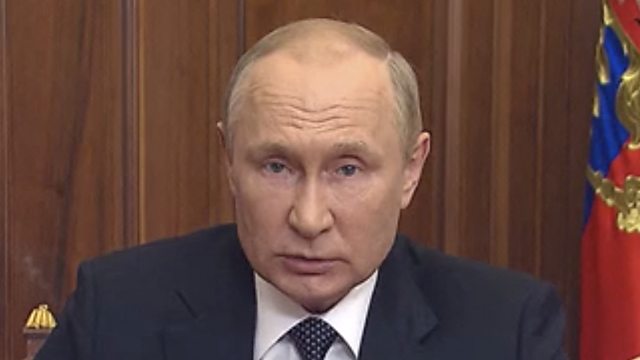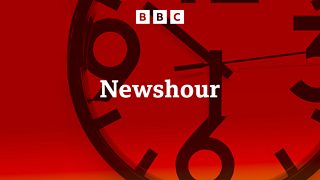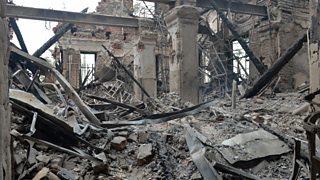Putin calls up reservists: What does it mean?
Putin has called up 300,000 Russian reservists, how might this affect the war in Ukraine?
Following major combat setbacks in Ukraine, Russian president Vladimir Putin has ordered a partial mobilisation of 300,000 reservists. In an address to the nation, he said Russia was directly threatened with "disintegration" by the western powers backing Kyiv government and warned Nato that nuclear-armed Russia could use any weapons in its armoury.
Shashank Joshi, defence editor for the Economist, takes a closer look at the military implications 300,000 reservists may have: "I think it's more likely to stabilise the lines than turn it in Russia's favour... it's really only going to be felt to its fullest extent into next year." This this number of men could "exacerbate" issues with equipment. "You can produce 300,000 warm bodies over a course of say 7-8 months. But, can you equip them, can you keep them fed, fuelled, happy, housed? ...having lots of men with guns is a rabble it is not an army... they have to be led and Russia has experienced catastrophic losses to its officer corp...that's going to be an enormous constraint to turn these forces into cohesive effective battlefield units."
And what about the prospect of nuclear weapons? "Nuclear weapons are not on a higher alert, despite all the words of bluster we've seen from Russian officials...certainly no sign of movements or preparations of nuclear...us intelligence would almost certainly see any Russian preps for nuclear use in Ukraine...it would not come out of the blue."
(Photo: Russian President Vladimir Putin makes an address, dedicated to a military conflict with Ukraine, in Moscow, Russia. Still image taken from video released September 21, 2022. Credit: Reuters)
Duration:
This clip is from
Featured in...
![]()
Russia-Ukraine war—The Newsroom
Analysis, reports and reaction to Russia's military assault on Ukraine
More clips from Newshour
-
![]()
Damascus resident: 'Assad took everything from us'
Duration: 04:02







